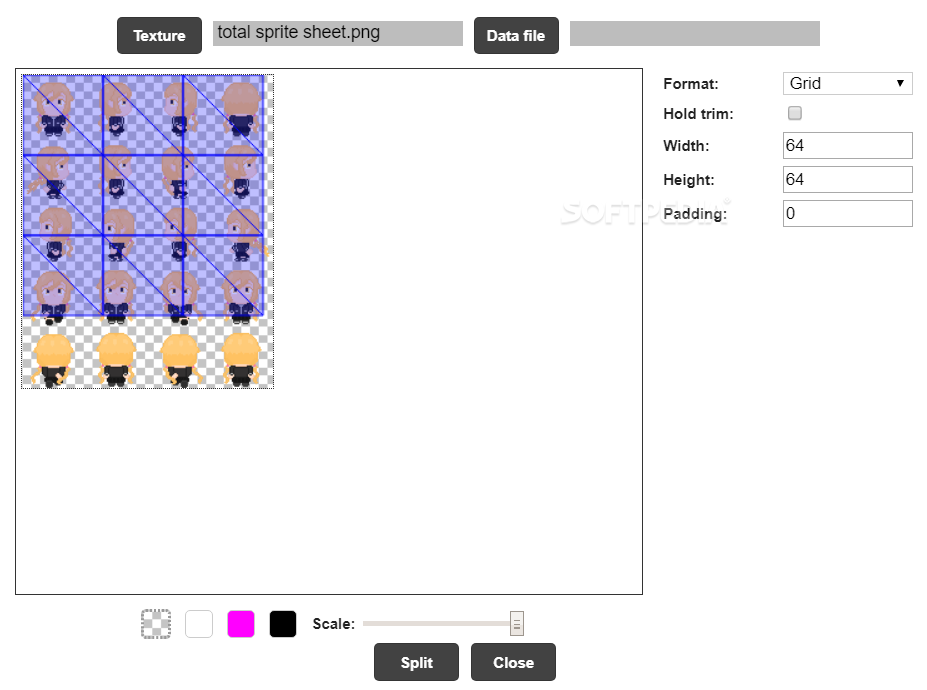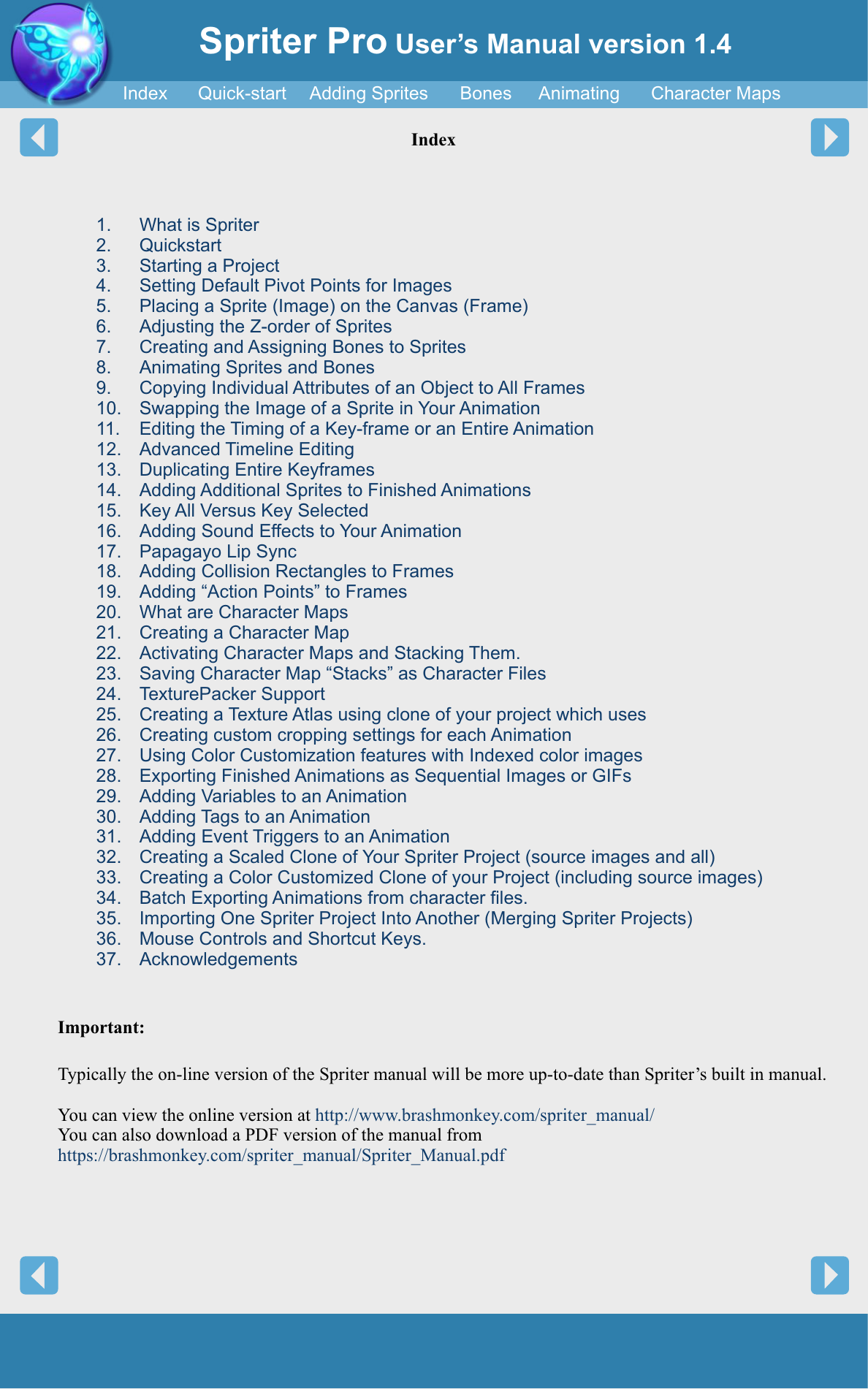

UPD: I learned about TexturePacker download it and disappointment came over me, To use the Godot SpriteSheet plugin in TexturePacker, you need to purchase the Pro version.

How can I cut out a few objects in this name_es and drag them out onto the scene?Īt the moment, I understand only one thing, that I need to create such files(name_es) for each object that I want to cut from my image that I imported. In the TextureRegion window, I select only one area, and it will be shown in the scene if I put this name_es in the sprite component on scene. Then I see that I can create name_es and put in the Atlas column my picture that I imported. Its command line version is also great for batch processing and integration with Xcode.
#TEXTUREPACKER 1 ROW FULL VERSION#
In Unity, I did it simply, from one image that has all the parts of different 2D objects in it, in the Unity import settings I cut this image into small parts (selected multiple), and I got several sprites that I could pull onto the scene and work with them.Ģ) In Godot, I import a file, and I don’t find in the import to cut the picture into small sprites. TexturePacker Crack MAC Full Version License Key.

If you have an odd width like 1011px (that is 1011 pixels/row 2 bytes/pixel 2022 bytes/row, which isn’t divisible by 4), TexturePacker will extend the sheet to make it 1102px wide that makes 551 words.
#TEXTUREPACKER 1 ROW UPDATE#
Hello everyone, I need help understanding es.įor starters, my version of how I understand. Update : Fully updated for Cocos2D 2.1-rc0a, Texture Packer 3.07, and Modern Objective-C style (original post by Ray Wenderlich, update by Tony Dahbura).


 0 kommentar(er)
0 kommentar(er)
